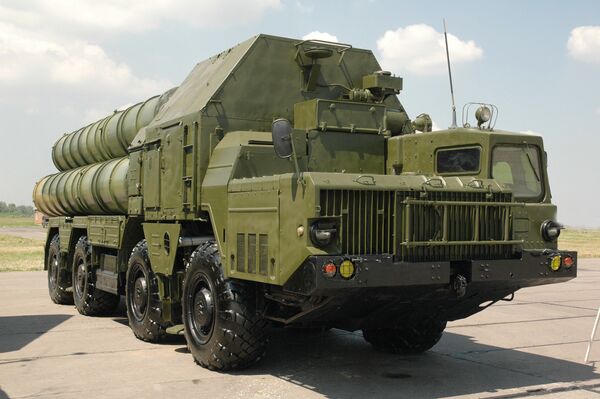Tehran is surprised by Russia's endorsement of new UN sanctions against the Islamic Republic, but still wants a S-300 missile deal with Moscow to go ahead, Iranian Ambassador Mahmoud-Reza Sajjadi said on Tuesday.
He said Russia's position was puzzling given the tripartite uranium enrichment agreement that was reached on May 17 between Iran, Turkey and Brazil. Under the deal, Iran will send abroad 1.2 tons of its low-enriched uranium to get 120 kg of 20%-enriched uranium fuel.
"A month ago, all the 5+1 countries [the five permanent members of the UN Security Council plus Germany] wanted us to agree to this swap, but now that we have agreed, we find it surprising that sanctions are once again on the agenda," the ambassador said.
He said Russia's stance could be due to the fact that it had received unreliable or incomplete information about the agreement, adding that bilateral dialogue was needed to clear up the situation.
The United Nations Security Council gathered in New York last week to discuss a draft resolution imposing a new set of sanctions on the Islamic Republic, which is accused by Western powers of attempting to build nuclear weapons under the guise of a civilian energy program.
Sajjadi said, however, that Iran stood by the S-300 surface-to-air missile contract with Russia.
He also expressed hope that Russia as an initiator of the nuclear fuel swap deal would persuade other countries to avoid sanctions and would also honor the S-300 deal.
The ambassador warned that new sanctions against Iran would force Teheran to reconsider the uranium swap deal.
"If new sanctions are imposed against Iran, it will be clear to the Iranian people that the international 'Six' has only malice and only follows political motives," he said. "This will force us to reconsider the Tehran agreement."
A senior Russian lawmaker said on Friday proposed new UN sanctions against Iran would not stop Russia from fulfilling its contract to deliver S-300 missile systems to the Islamic Republic.
Observers say however the delivery of Russian S-300s will be prohibited under the draft resolution, which includes a ban on the supply of defensive weapons to Iran.
Moscow signed a contract on supplying Iran with at least five S-300 systems in December 2005. However, the contract's implementation by Russia has so far been delayed.
The United States and Israel have called on Russia not to deliver the missiles to Iran.
The West is also concerned by Russia's role in helping Iran to build its first nuclear power plant in Bushehr. The head of the Russian State Atomic Energy corporation, Sergei Kiriyenko, said last week the plant will begin operating by late summer.
MOSCOW, May 25 (RIA Novosti)


